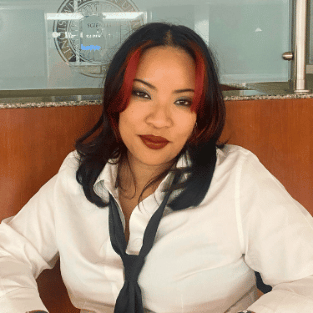BLOOMINGTON, Ill. — Vân Lê ‘26 wants to understand colonial power, and a great way to make that interesting to everyone is through food.

Born in Saigon, Vietnam, Lê moved from one region influenced by French colonial culture to another when her family came to New Orleans, Louisiana. Now an Eckley Scholar at IWU, Lê’s research project, titled "Understanding Social Dynamics through Food Culture in Colonial Vietnam," is the beginning of her planned post-graduate career as a scholar of colonialism.
Lê, who is majoring in Political Science and International and Global Studies, describes her project as having two parts attempting to answer two questions. First, how did the French colonial government of Vietnam control food as part of their effort to control the population? Second, how did modern Vietnamese food culture emerge from the dynamics of colonial control and cultural interaction?
Her research includes accounts of famines, both those created by natural disasters and those created by the colonial government withholding food, and how famine shapes food culture.
“People have to come up with new ways of eating with new ingredients because there’s just nothing else to eat,” Lê explained.
But withholding food could also be a matter of attempting to keep cultures apart.
“The French even wanted to control how ingredients were used.” Lê said. “They made it so that baguettes could only be made with wheat flour. Rice flour wasn’t allowed in French cuisine. But the Vietnamese would ignore those rules. Now pretty much all Vietnamese food, at least in the more urban middle-class areas, has French influence.”
But the French aren’t the only source of colonial influence in which Lê is interested. Vietnamese food is also influenced by the Chinese empire’s previous rule of Vietnam, as well as by the Kingdom of Vietnam’s own conquest of Cambodia in the early 1800s.
“Modern Vietnamese food is really a combination of Chinese, Cambodian, Thai, French, traditional Vietnamese cooking, and a bunch of other things,” Lê said.
Lê plans to expand her research through her senior seminar, in which she’s studying the increasingly nationalist sentiment of the modern Vietnamese people, who she says are more prone to culturally exclude the Vietnamese refugee diaspora.